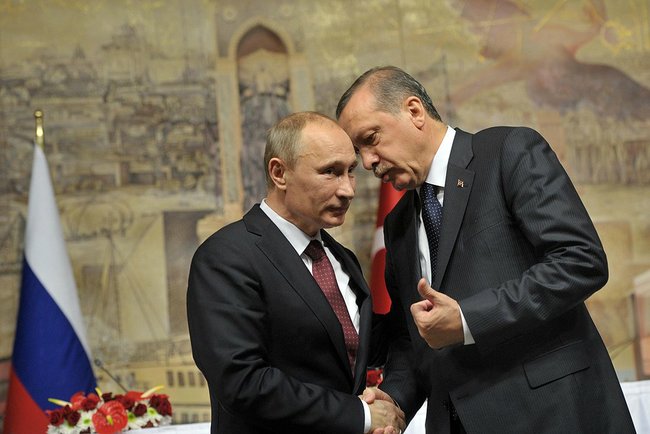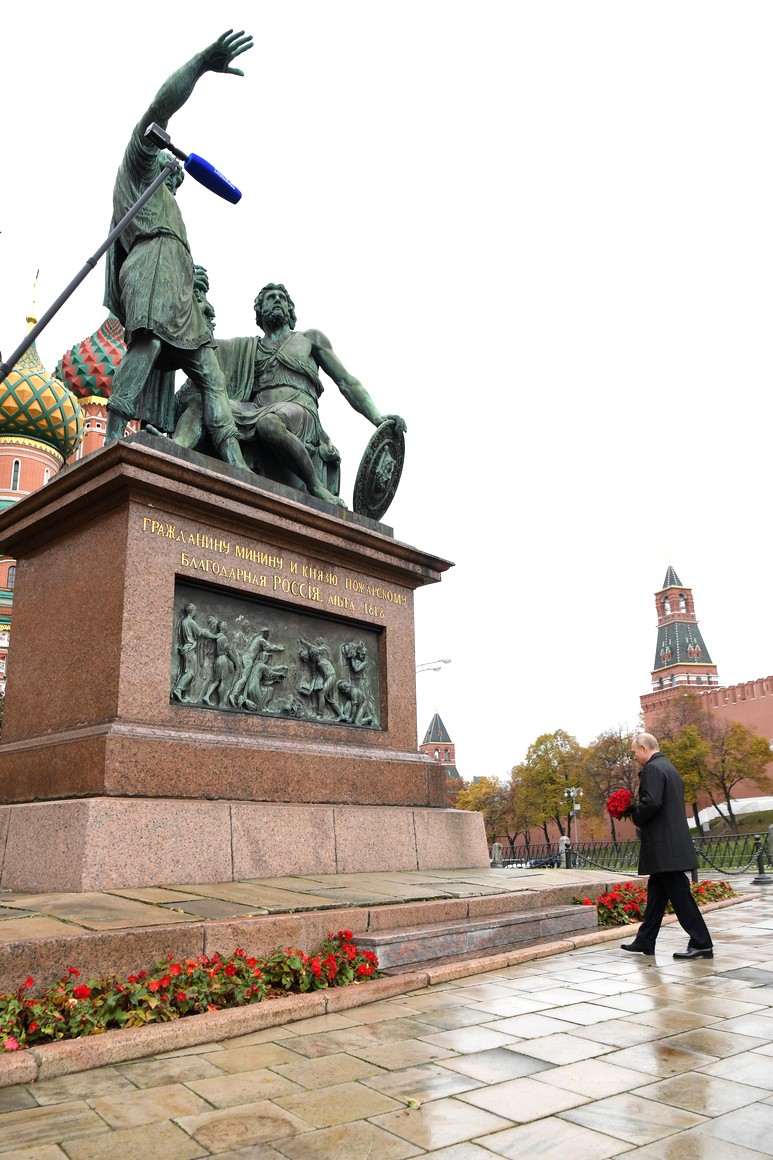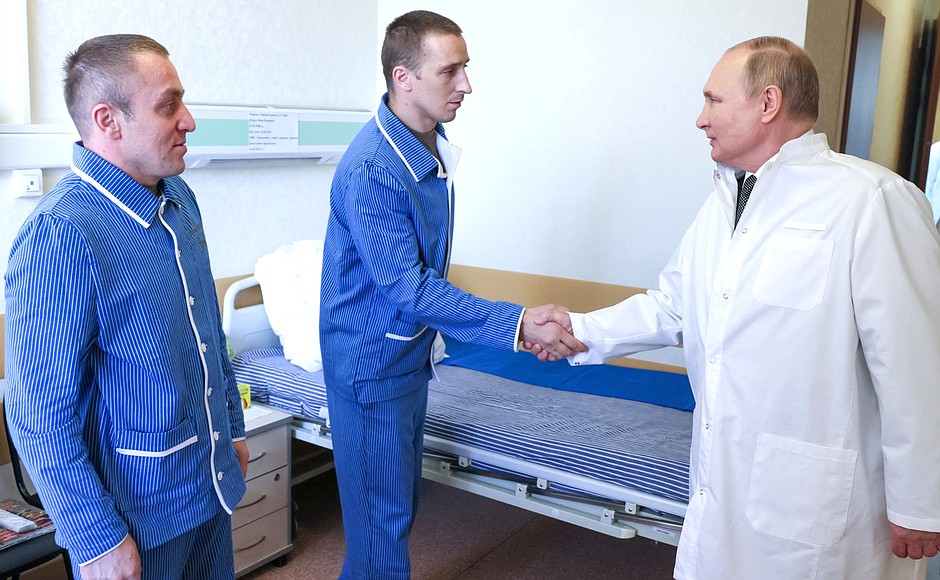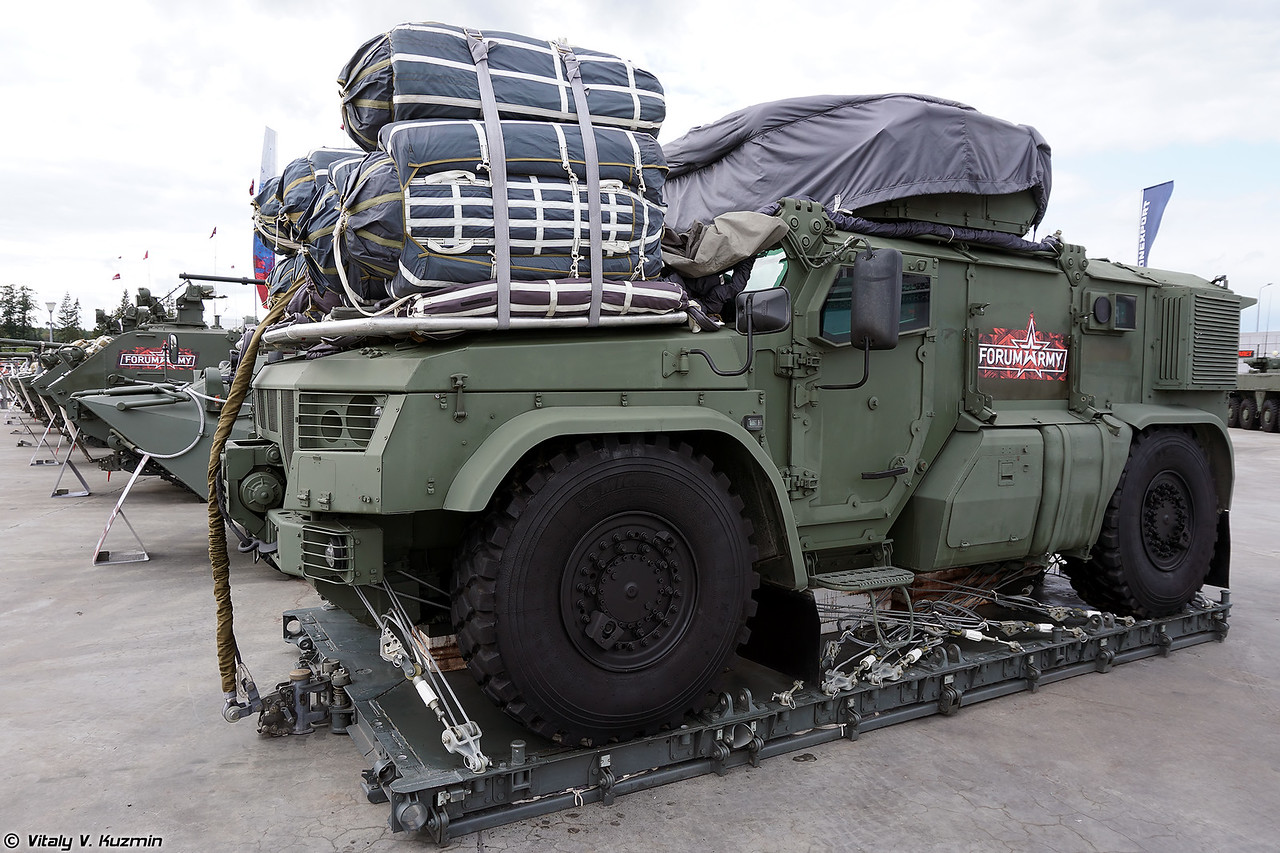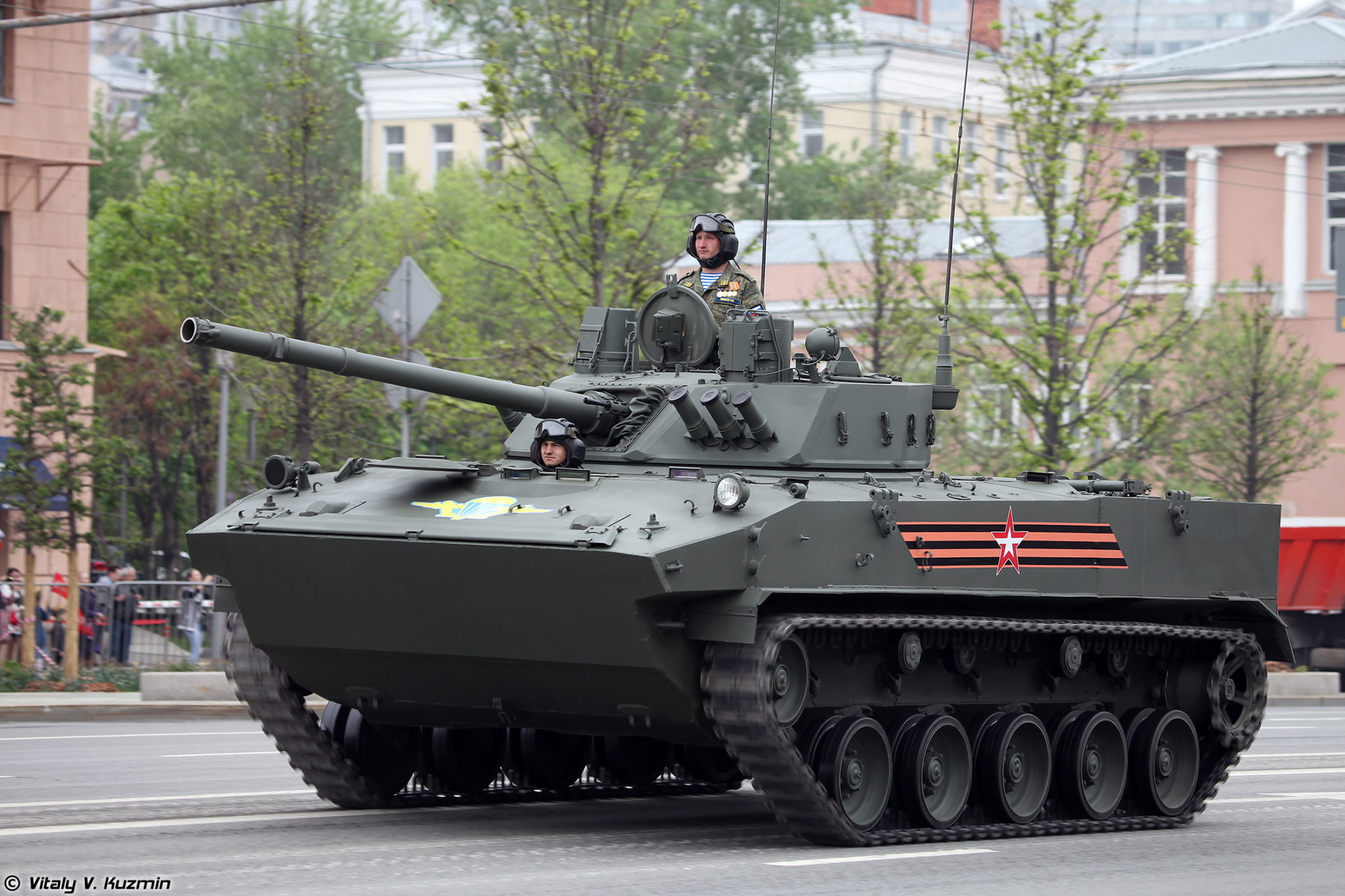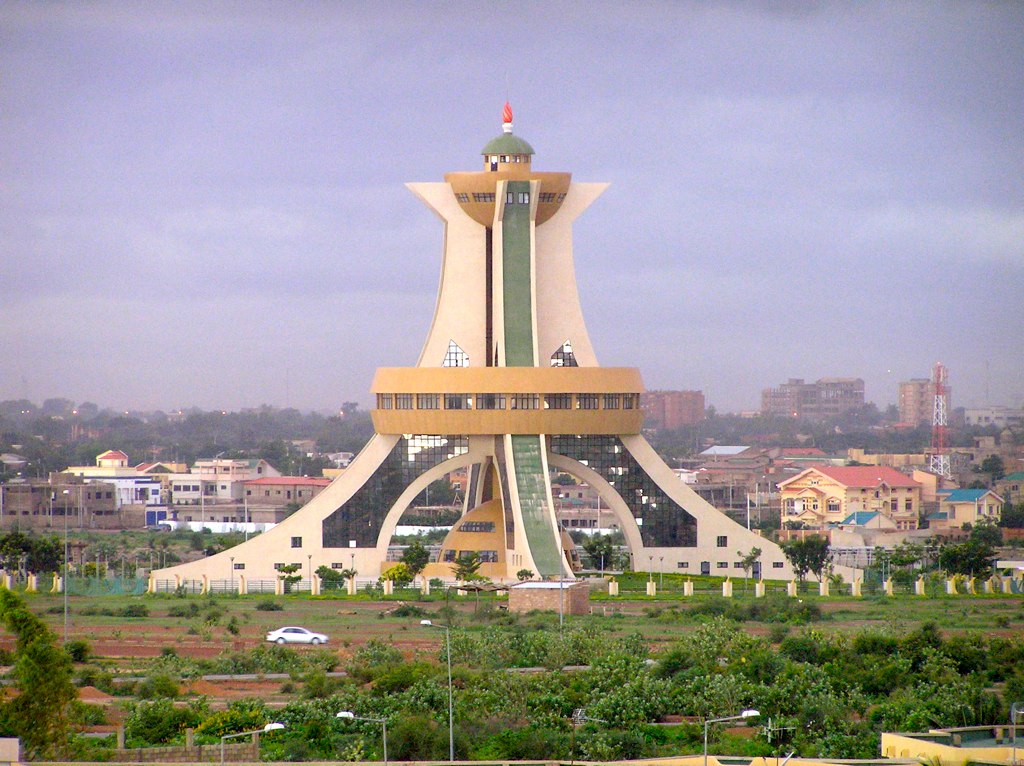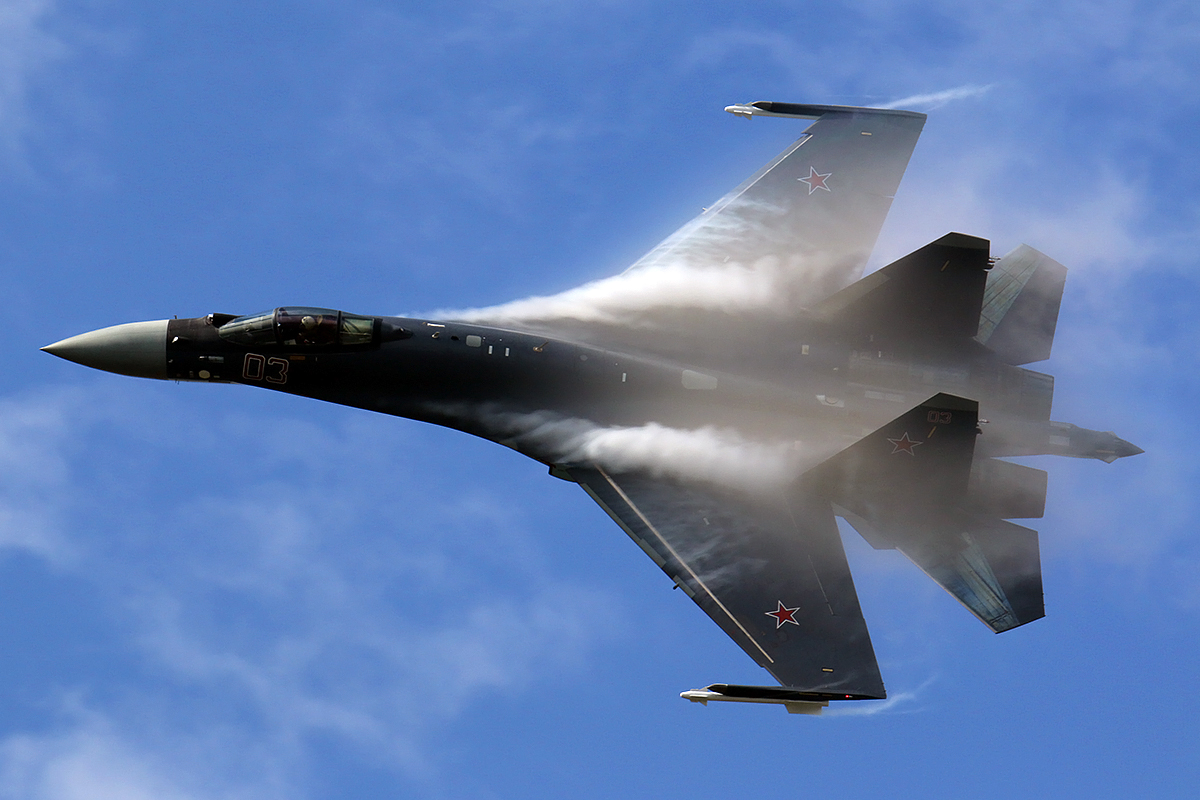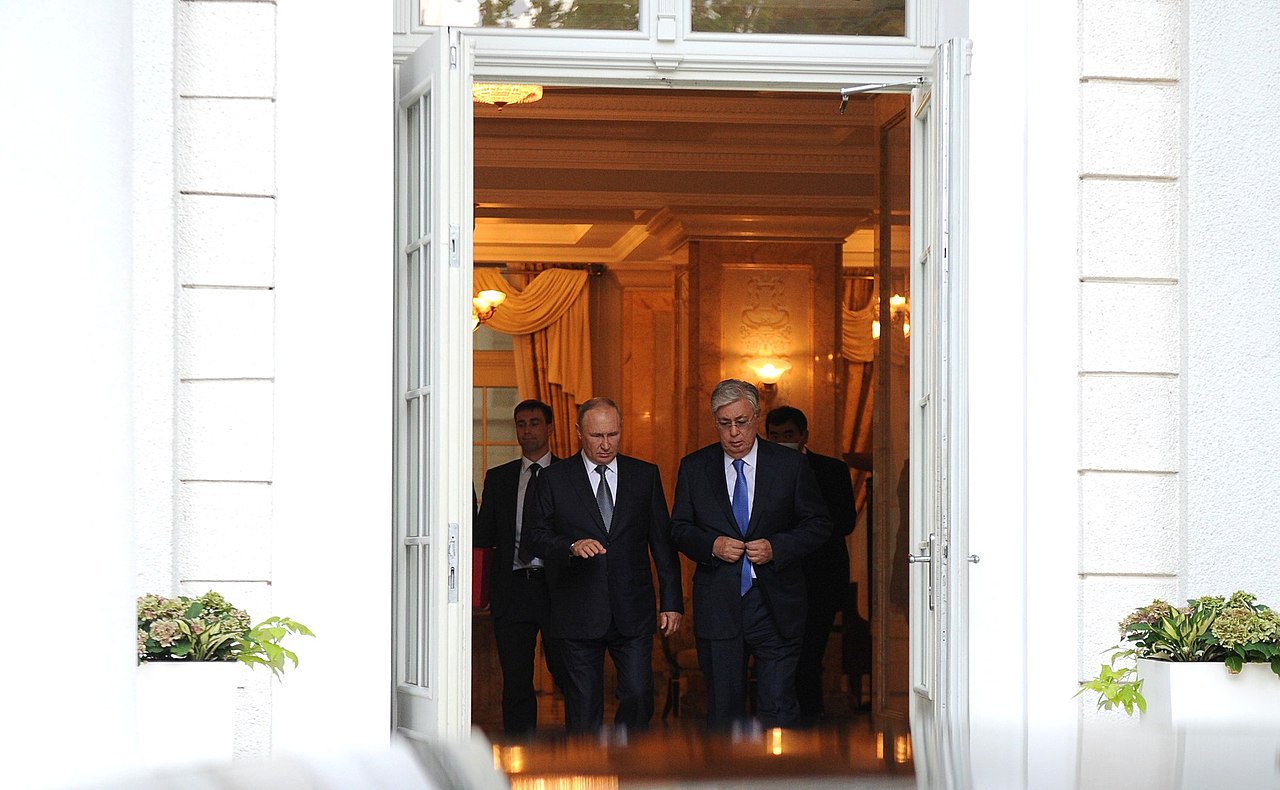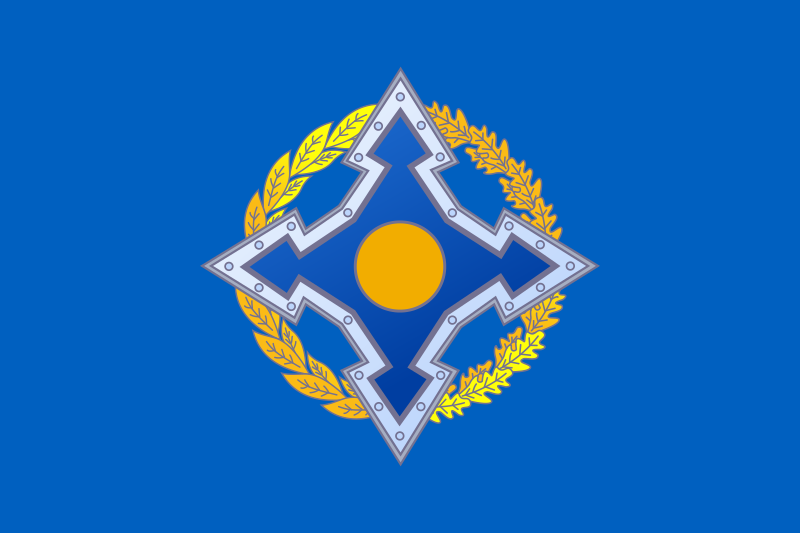
Flag of the Collective Security Treaty Organization.
“The question of the participation of the troops of the Collective Security Treaty Organization in the war between Russia and Ukraine is not on the agenda.”
Despite various disputes and conflicts, member states of the Collective Security Treaty Organization (CSTO) have until recently appeared to put aside their differences to continue working jointly within the Eurasian intergovernmental military alliance. However, as the accompanying excerpted articles illustrate, these internal frictions may be taking a toll. The first article excerpted article from semi-independent Russian daily newspaper Kommersant reports on Armenia’s refusal to participate in a CSTO exercise that took place in Kazakhstan. Armenian Prime Minister Nikol Pashinyan had requested that the CSTO provide military assistance following the mid-September 2022 clashes with Azerbaijan, but member states “insisted on the need to resolve the conflict situation through diplomacy.” This marked the second time that the CSTO refused military assistance to Armenia in its clashes with Azerbaijan. The second article, from independent news website Fergana, reports on Kyrgyzstan’s refusal to take part in a CSTO exercise in Tajikistan because of ongoing clashes on the Kyrgyz-Tajik border. The article also notes that the Ministry of Defense of Kyrgyzstan cancelled a separate CSTO exercise in Kyrgyzstan a week prior. The CSTO exercises in Kazakhstan, Kyrgyzstan, and Tajikistan were part of an annual series that focuses on preparing CSTO joint operational forces for a variety of scenarios. The third article, from Kazakhstan’s independent news website Vlast, reports on a comment from an official from Kazakhstan’s Foreign Ministry that CSTO forces will not get involved in the war in Ukraine, noting Kazakhstan’s respect for the territorial integrity of existing states. While Kazakh officials have previously mentioned their position on this, the statement comes at a time when other member states are showing less overall support for the organization.
Sources:
Andrey Sapozhnikov, “Армения не будет участвовать в учениях ОДКБ (Armenia will not participate in the CSTO exercises),” Kommersant (semi-independent Russian daily newspaper), 26 September 2022. https://www.kommersant.ru/doc/5581954
The exercises of the countries of the Collective Security Treaty Organization (CSTO), which will be held from September 26 to October 8 in Kazakhstan, will be held without the participation of Armenia. The reason for the country’s refusal to participate in military activities was the border conflict with Azerbaijan…
On September 13, the conflict between Armenia and Azerbaijan escalated…Armenian Prime Minister Nikol Pashinyan requested military assistance from the organization. The CSTO member countries, however, insisted on the need to resolve the conflict situation through diplomacy.
“Кыргызстан отказался от участия в учениях ОДКБ в Таджикистане из-за «неостывшей крови» (Kyrgyzstan refused to participate in the CSTO exercise in Tajikistan because of “bad blood”),” Fergana Agency (an independent news website focusing on Central Asia), 11 October 2022. https://fergana.agency/news/128011/
The military contingent of Kyrgyzstan will not take part in the exercises of the Collective Security Treaty Organization (CSTO) “Frontier – 2022” in Tajikistan due to the military conflict between the two countries. This was stated by Deputy Chairman of the Cabinet of Ministers of Kyrgyzstan Edil Baisalov…
…on October 9, the Ministry of Defense of Kyrgyzstan announced the cancellation of the CSTO exercises “Indestructible Brotherhood – 2022”, which were to be held from October 10 to 14 at the Edelweiss training center in Balykchy. The reasons for the cancellation were not reported.
Tamara Vaal, “Войска ОДКБ не будут принимать участие в войне между Россией и Украиной – МИД (The Forces of the CSTO will not take part in the war between Russia and Ukraine – Ministry of Foreign Affairs),” Vlast (independent news website in Kazakhstan),” 3 October 2022.
…The question of the participation of the troops of the Collective Security Treaty Organization in the war between Russia and Ukraine is not on the agenda, Aibek Smadiyarov, the agency’s official representative, said at a briefing at the Foreign Ministry on Monday…
He also stressed that Kazakhstan proceeds from the principles of the territorial integrity of states, their sovereign equality and peaceful coexistence in accordance with international law and the UN Charter.
Image Information:
Image: Flag of the Collective Security Treaty Organization
Source: https://commons.wikimedia.org/wiki/File:Flag_of_the_Collective_Security_Treaty_Organization.svg
Attribution: Public domain

